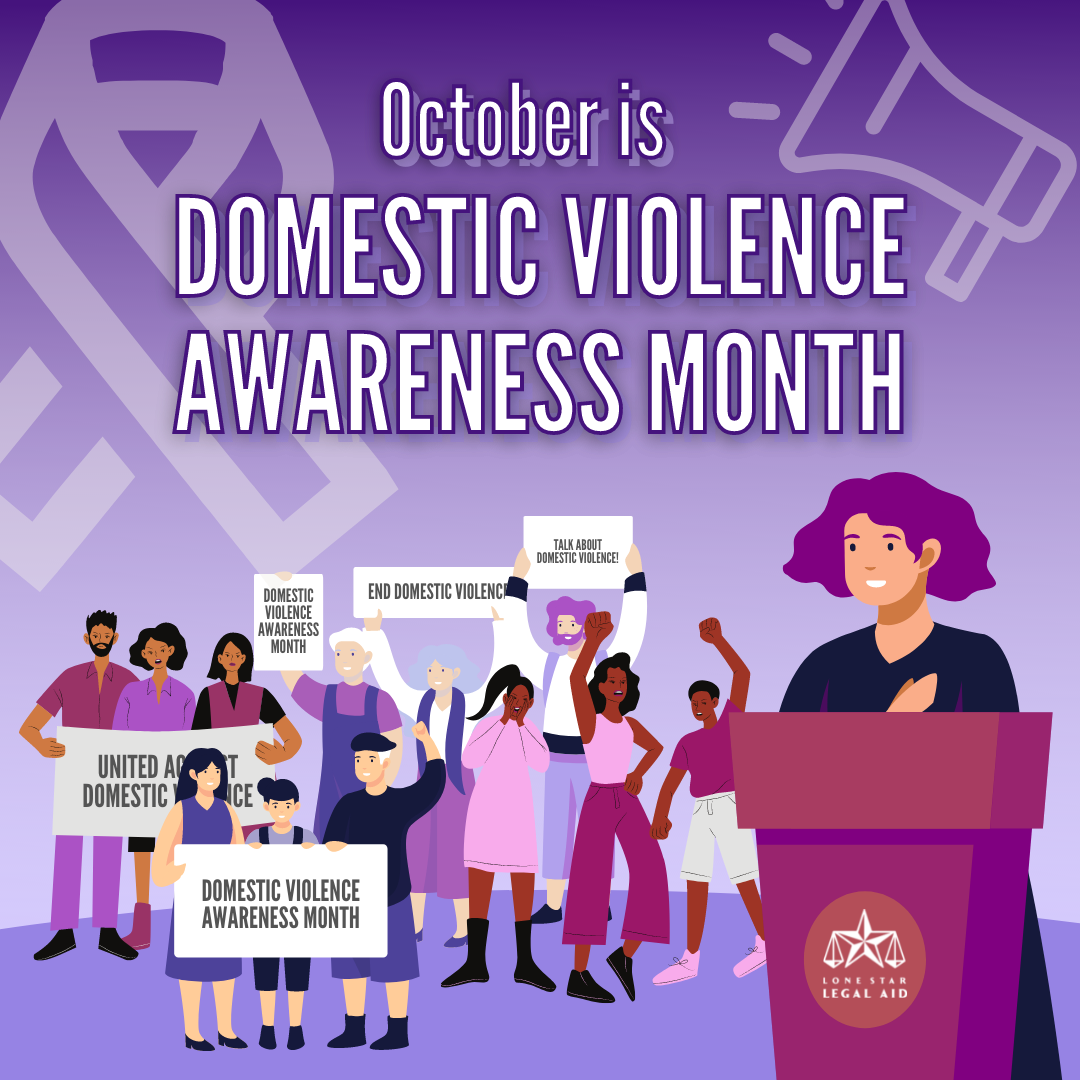October 7, 2021 by Natalie Cochran
October is Domestic Violence Awareness Month: Advocating for Survivors of Domestic Violence
Lone Star Legal Aid is a strong supporter of Domestic Violence Awareness Month. In this blog, you will find common topics relevant to advocating for domestic violence survivors, such as safety planning and prevention for those who are or know anyone living with an abusive partner, knowing how to be safe while using the internet if you are in a domestic abuse situation, and listening to the voices of survivors.
What is a safety plan?
Safety planning is a defensive and precautionary measure to have in place in case of an abusive situation. The plan should be personalized and practical to help the survivors improve their safety, prepare to leave, and provide support after leaving. Some of these include telling friends and family about their abusive situation, as well as coping with emotions and finding access to resources suited to their individual circumstances.
Some preparations for a safety plan might seem obvious, but studies show it is difficult for a survivor to think clearly in a time of crisis. Having a plan prepared ahead of time eliminates stress and helps make logical decisions.
You can create your own personal safety plan here.
Staying safe online
Another factor in staying safe and unreachable from your abusive partner is to manage your privacy and location settings on your phone apps and social media. Always check and change your privacy settings on social media, such as Instagram, Facebook, or Twitter. Adjusting these settings can hide your current uploads, location, and photos from your abusive partner who might be trying to locate you.
Listening to survivors
It is important to advocate for survivors of domestic violence, but it is also essential to truly listen. Sharing stories is part of the October campaign, which encourages the nation to mourn victims, celebrate survivors, and network for change. Listening and believing survivors is a proactive way to educate others. When survivors tell their stories, they let others know that it is possible to leave an abusive situation and overcome the trauma that follows.
To read our extensive blog on listening to survivors of domestic violence, click here.
Both men and women experience domestic violence in a relationship or marriage. Common responses for anyone experiencing abuse or violence are to express self-blame and fear of not being believed. Advocacy efforts, including listening to survivors’ stories, have improved understanding of how to approach fighting against abuse and breaking the cycle. Listening and reading real survivor stories has also helped people understand how men and women emotionally respond and heal differently, and how each should be approached when listening to their stories.
If you or a loved one are in an abusive situation and need assistance, you can visit the Texas Crime Victim Legal Assistance Network.
Lone Star Legal Aid is a 501(c)(3) nonprofit law firm focused on advocacy for low-income and underserved populations. Lone Star Legal Aid serves the millions of people at 125% of federal poverty guidelines that reside in 72 counties in the eastern and Gulf Coast regions of Texas, and 4 counties of southwest Arkansas. Lone Star Legal Aid focuses its resources on maintaining, enhancing, and protecting income and economic stability; preserving housing; improving outcomes for children; establishing and sustaining family safety and stability, health and well‐being; and assisting populations with special vulnerabilities, like those with disabilities, or who are elderly, homeless, or have limited English language skills. To learn more about Lone Star Legal Aid, visit our website at www.lonestarlegal.org.
Media contact: media@lonestarlegal.org.
